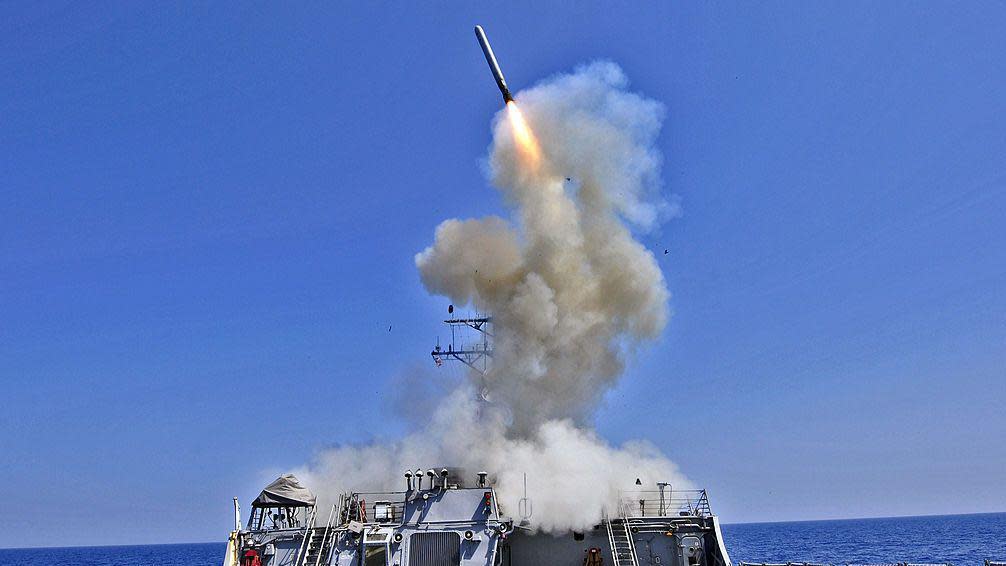US cruise missiles to return to Germany, angering Moscow

- Oops!Something went wrong.Please try again later.
Long-range US missiles are to be deployed periodically in Germany from 2026 for the first time since the Cold War, in a decision announced at Nato's 75th anniversary summit.
The Tomahawk cruise, SM-6 and hypersonic missiles have a significantly longer range than existing missiles, the US and Germany said in a joint statement.
Such missiles would have been banned under a 1988 treaty between the US and former Soviet Union, but the pact fell apart five years ago.
Russian Deputy Foreign Minister Sergei Ryabkov said Moscow would react with a "military reponse to the new threat".
"This is just a link in the chain of a course of escalation," he argued, accusing Nato and the US of trying to intimidate Russia.
The joint US-German statement made clear the "episodic" deployment of the missiles was initially seen as temporary but would later become permanent, as part of a US commitment to Nato and Europe's "integrated deterrence".
German Defence Minister Boris Pistorius, who was speaking at the Nato summit in Washington, said the idea behind the US plan was to encourage Germany and other European countries to put their own investment into developing and procuring longer-range missiles.
The temporary deployment of US weapons would give Nato allies the time to prepare, he explained: "We are talking here about an increasingly serious gap in capability in Europe."
Mr Pistorius joined colleagues from France, Italy and Poland on Thursday in signing a letter of intent aimed at developing long-range missiles in Europe. The European Long-Range Strike Approach (Elsa) was intended to improve European missile capability, which was "sorely needed to deter and defend our continent", Italian news agency Ansa reported.
Such missiles were banned under the Intermediate-Range Nuclear Forces (INF), which was signed at the end of the Cold War and covered ground-launched missiles that could travel between 500-5,500 km (310-3,400 miles).
Russia's Vladimir Putin felt it was too restrictive and in 2014 the US accused him of violating the pact with a new type of nuclear-capable cruise missile.
The US finally pulled out of the treaty in 2019, and Russia followed suit.
Politicians from Germany's Greens were critical of Chancellor Olaf Scholz's agreement to allow US missiles on German soil.
The Greens are part of Mr Scholz's ruling coalition, and their spokeswoman on security Sara Nanni made clear their frustration that he had made no comment about the decision.
"It can even heighten fears and leaves room for disinformation and incitement," she told the Rheinische Post newspaper.

